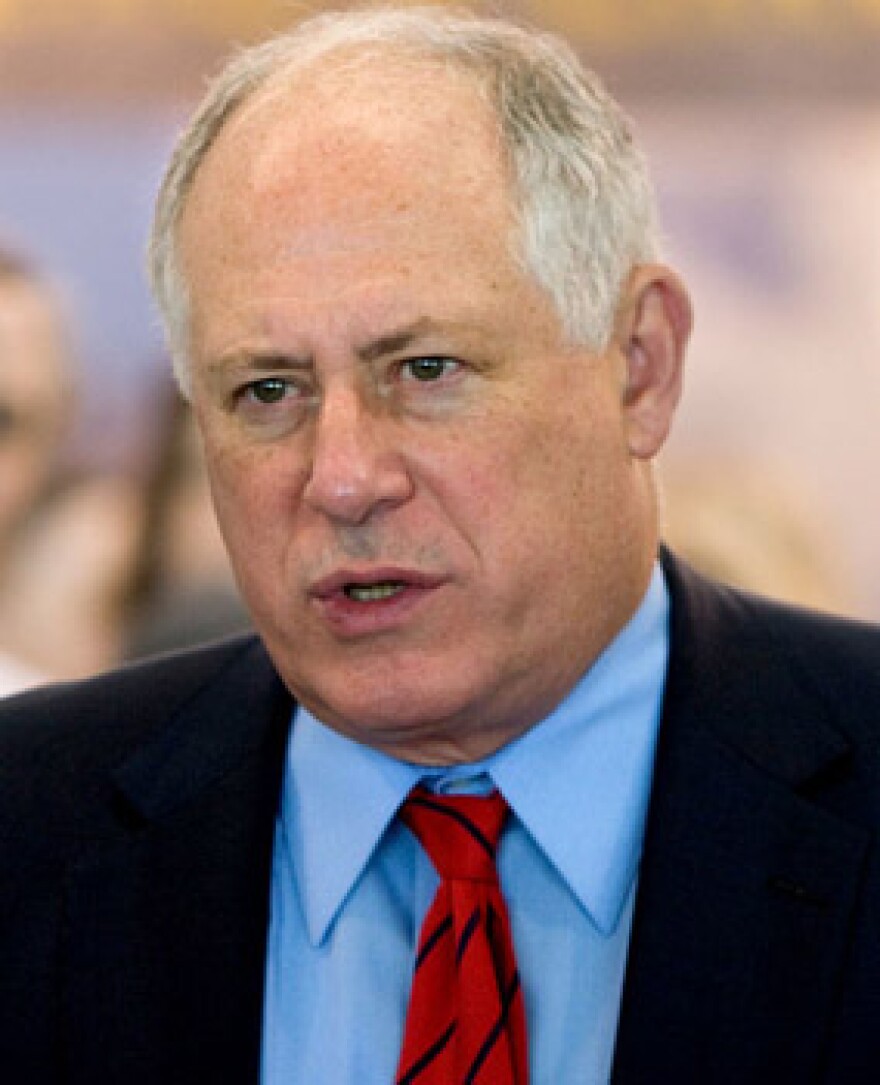Even though the recession is over and Illinois' budget is padded with last year's income tax hike, money is still tight in state government. This puts Illinois Gov. Pat Quinn in a difficult position as he lays out his budget for the next year.
The Governor will give his budget address today at noon at the Illinois Capitol and it will be full of gloom. And he is not even wading into the thick of the fiscal mess. Illinois Public Radio’s Amanda Vinicky explains.
“The toughest budget we’ve ever faced.”
Illinois' need to make painful budget cuts has become a common refrain at the capitol and Quinn's chief of staff Jack Lavin admits it.
"Every year we say 'this is the toughest budget, and I'm saying again, this year, this is the toughest budget we've ever faced,” Lavin said.
That's how the nearly 1,200 state employees set to lose their jobs under Quinn's plan are sure to feel too.
Quinn wants to close 14 state facilities, many of which would shift where Illinois houses its criminals. Quinn proposes closing a women's prison in Dwight, as well as the Tamms super max prison in deep southern Illinois. Tamms had housed Illinois' death row inmates. Now that Illinois no longer has capital punishment, the administration says it can move the state's most violent criminals to other prisons.
John Maki is director of the John Howard Association, a prison rights group. He applauds closing Tamms given its history of harsh tactics but he says closing Dwight doesn't make sense when Illinois' prisons are already overcrowded.
"We don't get to a smaller prison system by simply closing prisons down,” said Maki. “That's going to make the situation worse, that's going to make conditions worse, that's going to endanger not only inmates but also the staff that work in these prisons."
Maki also pans Quinn's idea of shutting down all but one of the state's seven transition centers. They're like halfway houses, and help ease inmates back into society, with vocation and drug abuse programs.
"Instead of doing that from all of these adult transition centers located all over the state, two in Chicago, Peoria, Decatur, Aurora, Carbondale, they're going to do it on electronic detention,” said Maki.
"But we're not done yet," Quinn’s budget director, David Vaught said.
More closures and cuts
The administration also wants to close two juvenile detention facilities, in Joliet and Murphysboro; shut down a forensic lab in Carbondale, mental hospitals in Tinley Park and Rockford, and institutions for the developmentally disabled in Jacksonville and Centralia; and consolidate two dozen human service offices.
"You begin to see that everybody in the state is going to be affected by this downsizing of state government and this closing of facilities," Vaught said.
That's already raised the ire of the state's largest public employees' union. Even before Quinn's address, AFSCME is slamming the cuts.
It's not just closures.
Quinn's calling for nine percent cuts to most state agencies.
Schools and universities are the main exceptions because the governor's office says education is key to creating jobs in the future.
There are also predictions Quinn will discuss eliminating some business tax breaks, possibly to pay down the growing backlog of overdue bills.
What’s left out?
But what may get the most attention is what Quinn isn’t going to propose.
The governor's top aides say that stabilizing Illinois’ pension and Medicaid programs is crucial for the fiscal future. They say those twin pressures are squeezing out all other spending, and forcing the rest of the cuts and closures.
Chief of staff Jack Lavin says Quinn won't use his budget address to give specific recommendations on a cure.
"It's not everything just what the Governor says, it's got to be the Governor, working with the General Assembly, to decide what the priorities are and how we can address this significant issue of out of control spending," Lavin said.
The Governor and legislature don't have the closest working relationship.
Already Republicans say Quinn's plan increases spending and runs a deficit.
"So the idea that somehow fiscal responsibility has come to the Quinn administration is patently false," Republicans senator Matt Murphy from Palatine said.
Last year, lawmakers put together a budget with less spending than what Quinn wanted, and included few of his ideas. He promptly vetoed parts of the plan.
But with the state's finances still in shambles, Quinn may be more than happy to step down from his bully pulpit and share the pain.



